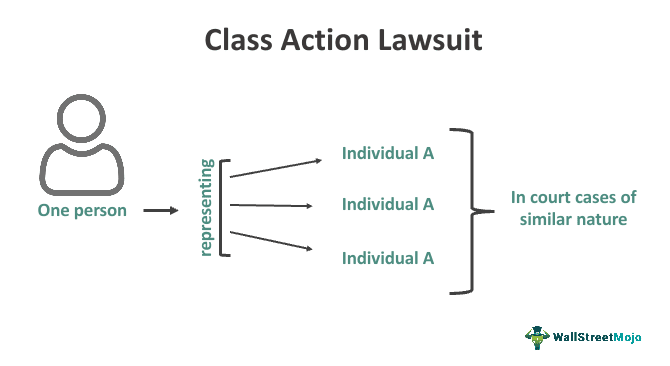Legal Advocacy Unveiled: Your Go-To Resource for Class Action Lawsuit Information
Legal Advocacy Unveiled: Your Go-To Resource for Class Action Lawsuit Information
Blog Article
Secret Aspects to Take Into Consideration in Course Activity Lawsuits: Insights for Lawyers
Class action lawsuits can be difficult and complex for lawyers to browse. Comprehending these elements and their implications is crucial for legal representatives intending to efficiently represent their clients in course action lawsuits.
Course Accreditation Requirements
To continue with a class action legal action, attorneys must browse with a collection of rigid class qualification demands. Course accreditation is an essential phase in the litigation procedure that figures out whether a group of complainants can be certified as a course and wage their cases collectively. These demands serve to make sure that class activities are effective and appropriate devices for fixing disputes including countless plaintiffs.
While there is no fixed numerical threshold, courts normally take into consideration a class with more than 40 members as adequately countless. Additionally, commonality is another vital variable in course certification.
Additionally, typicality and adequacy of representation are vital factors to consider. Typicality makes certain that the claims or defenses of the representative parties are typical of the class. Adequacy of representation ensures that the agents will relatively and appropriately protect the interests of the course participants. A course activity should also satisfy the need of supremacy, indicating that a class action is a premium approach for adjudicating the dispute contrasted to other available approaches.
Navigating through these course certification needs can be complex and challenging for legal representatives. Understanding and conference these demands are essential to effectively pursue a class activity suit on part of a team of plaintiffs.

Commonality of Claims
The following vital element to consider in the course accreditation process is the commonness of claims amongst the plaintiffs. Commonality describes whether the class participants share similar lawful problems and questions of reality that can be fixed collectively. In various other words, it is required to establish if there prevail questions of regulation or fact that are main to the litigation which predominate over any specific issues.
To develop commonality, the complainants must show that there are legal or valid issues that prevail to the entire class. This can be achieved by recognizing a common training course of conduct or a common legal concept that underlies the claims (Class action lawsuit). The existence of usual questions is very important because it advertises judicial performance and economic climate by permitting a single decision to solve the issues for the entire course
Nonetheless, it is very important to keep in mind that the commonness requirement does not necessitate that all the private cases equal. If there are still typical concerns that bind the course with each other., differences in damages or private scenarios do not always beat commonness.

Problems Calculations
One vital aspect to think about when computing problems in class action claims is the exact assessment of financial losses incurred by the course participants. In order to determine the suitable amount of payment, it is needed to review the level of harm suffered by each individual within the class. This can be a complex job, as it needs a detailed evaluation of numerous variables, such as the nature and period of the injury, the economic influence on the influenced people, and any kind of various other pertinent factors to consider.
When analyzing monetary losses, it is important to take into consideration both the straight and indirect problems experienced by the class participants. Direct problems refer to the actual out-of-pocket expenses sustained as a result of the offender's actions.
To compute damages properly, attorneys have to gather thorough evidence, consisting of financial documents, specialist viewpoints, and testaments from the class participants. They may likewise require to engage financial and financial specialists who can supply insights into the lasting financial effects of the harm experienced.
Negotiation Negotiations
During negotiation arrangements, attorneys should take part in careful and tactical the original source discussions to get to an equally reasonable resolution for all parties associated with the course activity legal action (Class action lawsuit). Settlement settlements are an essential phase in the litigation process, where the celebrations try to get to a compromise without going to trial. These settlements call official site for lawyers to employ their settlement abilities, lawful proficiency, and understanding of the situation's staminas and weak points
One important aspect to take into consideration throughout settlement negotiations is the prospective dangers and expenses connected with proceeding to test. Attorneys should very carefully review the chance of success at test and consider it versus the possible advantages of a negotiation. They must likewise think about the prospective time and resources that would be required to go through a trial, as well as the possible adverse attention that might result from a public trial.
Another vital variable is the rate of interests and worries of the class members. Lawyers require to comprehend what the class participants wish to accomplish through the lawsuit and just how a negotiation can address their grievances. By taking into consideration the course members' perspectives and seeking advice from them throughout the settlement process, lawyers can better advocate for their passions and guarantee that any negotiation reached is adequate and fair.
In addition, lawyers must be prepared to bargain with the opposing celebration and their legal reps. This needs a deep understanding of the strengths and weak points of both sides' arguments and a readiness to jeopardize. Skilled arbitrators can take advantage of this expertise to discover commonalities and craft creative remedies that meet the demands of all parties included.
Effective Client Depiction
To efficiently represent their customers in class action legal actions, lawyers need to have a comprehensive understanding of the situation and diligently advocate for their customers' passions. Efficient customer depiction requires attorneys to develop open lines of interaction and maintain a strong attorney-client connection throughout the whole litigation process.
First and leading, legal representatives should completely assess the facts, lawful problems, and prospective risks related this article to the situation. This includes carrying out a detailed investigation, reviewing appropriate records, and consulting with professionals if needed. By getting a deep understanding of the instance, legal representatives can develop a tactical method tailored to their clients' goals and requirements.
Moreover, legal representatives have to proactively support for their customers' passions throughout all phases of the claim. This includes preparing convincing legal arguments, conducting extensive research study, and providing compelling evidence to sustain their customers' insurance claims. Attorneys ought to likewise stay informed about current growths in course action law and utilize this expertise to enhance their clients' positions.
In enhancement to lawful advocacy, effective customer depiction involves providing normal updates, responding to questions, and resolving any type of issues that clients might have. Attorneys must be aggressive in maintaining their clients educated regarding the progress of the instance and any substantial advancements that may influence the outcome.
Inevitably, efficient customer representation requires attorneys to be diligent, receptive, and dedicated to shielding their clients' passions and legal rights. By taking on a client-centered method, legal representatives can make best use of the possibilities of attaining a beneficial end result in class activity lawsuits.
Final Thought
Finally, legal representatives included in class activity suits should think about vital factors such as course qualification requirements, the commonality of insurance claims, problems estimations, negotiation arrangements, and effective client representation. By very carefully resolving these variables, lawyers can enhance their chances of success in class action suits and make sure that the rate of interests of their customers are shielded.
Recognizing these variables and their effects is crucial for lawyers aiming to effectively represent their clients in course activity legal actions.To continue with a course activity suit, attorneys should navigate through a collection of rigorous course accreditation demands. Class certification is an essential stage in the lawsuits procedure that figures out whether a group of plaintiffs can be certified as a course and continue with their claims collectively. A course activity should also please the demand of supremacy, meaning that a course activity is an exceptional method for settling the conflict compared to various other offered methods.
One crucial facet to think about when calculating problems in class activity suits is the accurate analysis of financial losses sustained by the class participants.
Report this page